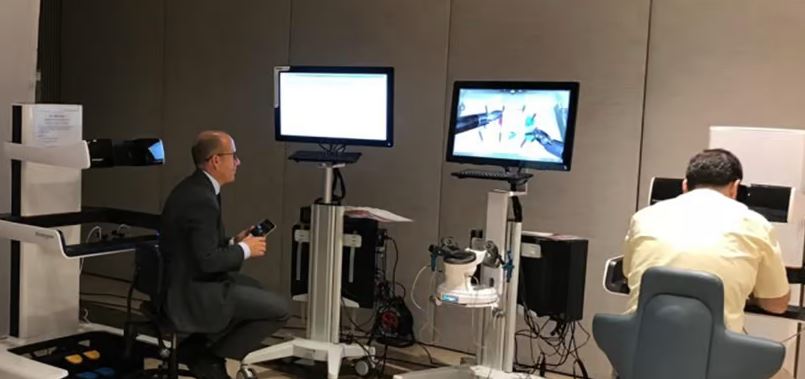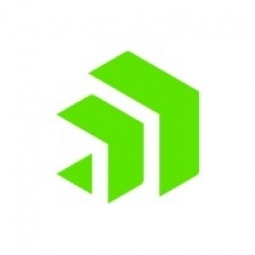下载PDF
Providing Scalability and Speed for a National Treasure
技术
- 分析与建模 - 实时分析
- 平台即服务 (PaaS) - 数据管理平台
适用行业
- 教育
用例
- 搜救
服务
- 数据科学服务
- 系统集成
挑战
The U.S. National Archives and University of Virginia (U.Va.) Press faced the challenge of transforming Founders Online, a scholarly tool traditionally accessed by a limited number of researchers, into a national resource capable of serving the public at large. The original platform was not designed to handle concurrent users at scale. The old platform's performance under load deteriorated quickly, and testing suggested the architecture would only support 100 concurrent users. The design imperative for the original system was to preserve the look and feel of print volumes, which had a minimal impact on smaller files, but longer, outlying collections stressed the system. The old platform recreated each search from scratch, putting an unnecessary burden on computing resources while slowing the system down. To make matters more complex, the organization had the equivalent of just 1.5 full-time programmers to devote to the project.
关于客户
Founders Online is a free online tool commissioned by the U.S. National Archives and implemented by University of Virginia (U.Va.) Press that lets the public access the papers of six of America's Founding Fathers: Thomas Jefferson, Benjamin Franklin, George Washington, James Madison, John Adams and Alexander Hamilton. Funded by the National Historical Publications and Records Commission of the National Archives, Founders Online grew out of 50 years of scholarly efforts and gives unique insight into some of the brightest minds of the Age of Enlightenment. The website provides searchable access to over 150,000 documents, a number that's projected to grow to 175,000.
解决方案
MarkLogic, the only Enterprise NoSQL database platform, was used to build content systems that can manage billions of data points quickly. It allows enterprises to populate data in whatever form they have, not just the inflexible rows and columns of traditional structured databases. Using MarkLogic's native search, navigation and rendering capabilities, U.Va. Press didn't have to rebuild from the ground up to rescale its existing platform. It simply started thinking about queries in the aggregate, instead of on a document-by-document basis. For example, whereas a traditional structured database crawls through millions of rows and columns, MarkLogic uses data mapping to locate relevant documents quickly. The customer created a static index of previous search results, and prepopulated it before public launch with the most common search terms and links. Now, when a known search term is entered into the system, it simply serves up those existing results, instead of crawling through each stored document again. And the more people who use the system, the richer that stored search cache becomes.
运营影响
数量效益
相关案例.

Case Study
IoT platform Enables Safety Solutions for U.S. School Districts
Designed to alert drivers when schoolchildren are present, especially in low-visibility conditions, school-zone flasher signals are typically updated manually at each school. The switching is based on the school calendar and manually changed when an unexpected early dismissal occurs, as in the case of a weather-event altering the normal schedule. The process to reprogram the flashers requires a significant effort by school district personnel to implement due to the large number of warning flashers installed across an entire school district.

Case Study
Revolutionizing Medical Training in India: GSL Smart Lab and the LAP Mentor
The GSL SMART Lab, a collective effort of the GSL College of Medicine and the GSL College of Nursing and Health Science, was facing a challenge in providing superior training to healthcare professionals. As clinical medicine was becoming more focused on patient safety and quality of care, the need for medical simulation to bridge the educational gap between the classroom and the clinical environment was becoming increasingly apparent. Dr. Sandeep Ganni, the director of the GSL SMART Lab, envisioned a world-class surgical and medical training center where physicians and healthcare professionals could learn skills through simulation training. He was looking for different simulators for different specialties to provide both basic and advanced simulation training. For laparoscopic surgery, he was interested in a high fidelity simulator that could provide basic surgical and suturing skills training for international accreditation as well as specific hands-on training in complex laparoscopic procedures for practicing physicians in India.

Case Study
Implementing Robotic Surgery Training Simulator for Enhanced Surgical Proficiency
Fundacio Puigvert, a leading European medical center specializing in Urology, Nephrology, and Andrology, faced a significant challenge in training its surgical residents. The institution recognized the need for a more standardized and comprehensive training curriculum, particularly in the area of robotic surgery. The challenge was underscored by two independent studies showing that less than 5% of residents in Italian and German residency programs could perform major or complex procedures by the end of their residency. The institution sought to establish a virtual reality simulation lab that would include endourological, laparoscopic, and robotic platforms. However, they needed a simulator that could replicate both the hardware and software of the robotic Da Vinci console used in the operating room, without being connected to the actual physical console. They also required a system that could provide both basic and advanced simulation training, and a metrics system to assess the proficiency of the trainees before they performed surgical procedures in the operating theater.

Case Study
Edinburgh Napier University streamlines long-distance learning with Cisco WebEX
• Geographically dispersed campus made in-person meetings costly and inconvenient.• Distance-learning programs in Malaysia, India, and China required dependable, user-friendly online tools to maximize interaction in collaborative workspaces.• Virtual learning environment required a separate sign-in process, resulting in a significant administrative burden for IT staff and limited adoption of collaboration technology.

Case Study
8x increased productivity with VKS
Before VKS, a teacher would spend a lot of time showing a group of 22 students how to build a set of stairs within a semester of 120 hours. Along with not leaving the teacher much time to provide one-on-one support for each student to properly learn carpentry, it also left a considerable amount of room for error. Key information would be misinterpreted or lost as the class was taught in the typical show-and-tell way.

Case Study
Scalable IoT Empowering GreenFlex's Sustainable Growth
GreenFlex, a company that supports sustainable development, decarbonization, and energy efficiency, faced several challenges in its quest to expand its business. The company needed to deploy a robust and sustainable IoT technology to support its growth. It was crucial for them to monitor and control devices at customer sites in a safe and reliable manner. They also needed to integrate devices across a range of communication protocols and gather and act on data to meet efficiency targets. GreenFlex had previously built IoT capabilities into its digital platform, GreenFlexIQ, to monitor and manage customer sites remotely. However, they soon realized that they needed a new platform to support their ambitions. They needed a platform that could scale to connect more devices for production management and make it easier for the operations team to manage devices in the field.





